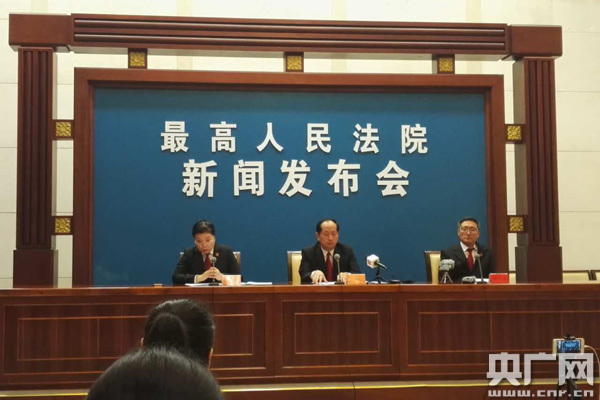
Beijing, Oct. 19 (Reporter Liu Huimin) According to the Voice of China, Yangguang News reported that the Supreme People’s Court held a press conference today (19th) to inform the people’s courts of typical cases of protecting heroes’ reputation and other personal rights and interests according to law.
Today’s press conference mainly reported five cases. Mainly involved in the "Five Heroes of Langya Mountain" and Qiu Shaoyun, these heroes.
Among them, the first four cases are all related to the "Five Heroes of Langya Mountain", which is caused by an article questioning the "Five Heroes of Langya Mountain". In 2013, the 11th issue of Yanhuang Chunqiu magazine published the article "Differences in Details of the Five Strong Men in Langyashan" written by Hong Zhenkuai and edited by Huang Zhong, questioning the details of the heroic deeds of the five strong men in Langyashan.
After the article was published, Mei Xinyu published a blog post in Weibo, criticizing the questioning article. Shortly after the publication of Mei Xinyu Weibo, another netizen, Guo Songmin, forwarded this Weibo, wrote Weibo at the same time, and criticized the author and editor of the article.
Accordingly, Hong Zhenkuai and Huang Zhong sued Mei Xinyu and Guo Songmin to the court on the grounds of infringement of reputation.
In the third and fourth cases, Hong Zhenkuai acted as the defendant. The plaintiffs were Ge Changsheng and Song Fubao, descendants of Ge Zhenlin and Song Xueyi among the five strong men in Langya Mountain. They believe that the article written by Hong Zhenkuai smeared the heroic image and reputation of the "Five Heroes of Langya Mountain" and asked the court to order him to stop the infringement, publicly apologize and eliminate the influence.
In the end, in the first two cases, the court did not support the claim of Hong Zhenkuai, the author and editor of Details, Huang Zhong. In the latter two cases, the court ruled that Hong Zhenkuai immediately stopped infringing on the reputation and honor of Ge Zhenlin and Song Xueyi, publicly issued an apology announcement, and apologized to the plaintiff to eliminate the influence.
In the fifth case, netizens Sun Jie and Jiaduobao Company were recently sentenced by the court to publicly apologize and compensate Qiu Shaoyun’s brother Qiu Shaohua for his mental damage, 1 yuan.
The court held that the deeds, images and spiritual values of heroes have become part of the common memory and national feelings of the Chinese nation. In these cases, the infringers often use academic research, commercial marketing activities and other means, taking the Internet media as the main tool, to slander, insult and slander the heroes, vilify their images, degrade their reputations and weaken their spiritual values, and then deconstruct the socialist core values of contemporary China.
In trying such cases, people’s courts should not only protect the personal rights and interests of heroes according to law, but also emphasize the function of demonstrating the public value of judgments. It not only protects freedom of speech, does not make judicial judgments on academic issues, but also imposes sanctions on acts that infringe upon the legitimate rights and interests of others in the name of academic research, properly balances the interests of different subjects, and comprehensively and accurately applies the provisions of existing laws and judicial interpretations.
Cheng Xinwen, president of the First People’s Court of the Supreme People’s Court, said that people’s courts at all levels will, as always, protect the legitimate rights and interests, including heroes, through judicial trials, demonstrate social fairness and justice, and safeguard socialist core values.